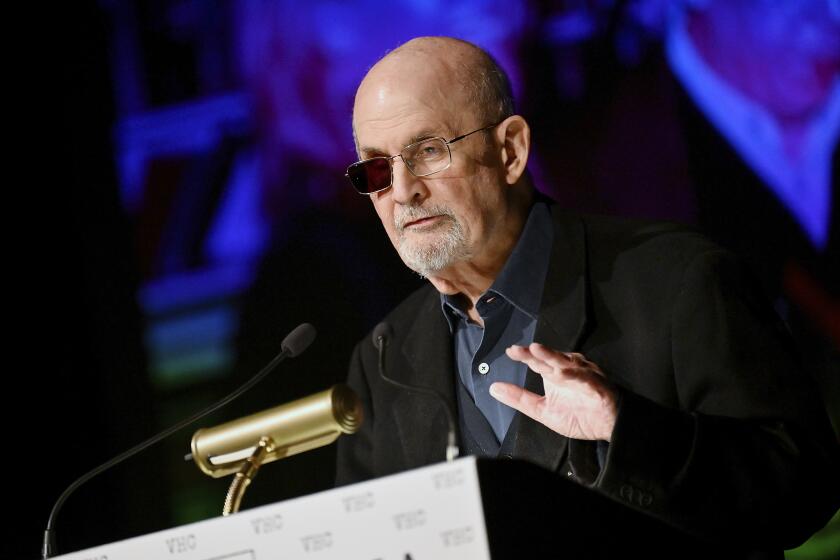The Ohio Gang
Corruption abounds. The U.S. secretary of the Interior is giving no-bid contracts for oil, coal and timber on public land to the president’s corporate campaign contributors in secret meetings. Big Oil not only writes energy policy but also dictates military options and environmental priorities, this last mainly by dismantling protections enacted by previous presidents. The U.S. attorney general signs off on whatever comes his way, putting the administration’s friends above the law. The FBI looks the other way. The president may not understand what it all means, but it’s unclear whether he would disapprove if he did.
What year is it? Here are a few more hints: The president’s security detail shuttles concubines in and out of the White House and delivers payoffs to former mistresses to keep them quiet. His wife consults a psychic daily and punishes petty slights with the help of government agencies. Vocal upholders of public morals keep their gay lovers in Washington and their wives back home.
Yes, it’s 1922, during the presidency of Warren G. Harding, one of the most inept and corrupt in American history. Laton McCartney’s new book, “The Teapot Dome Scandal,” tells the story of its signature embezzlement.
Harding, a U.S. senator from Ohio, was chosen as the Republican presidential nominee by political power brokers -- including several oilmen -- at Chicago’s Blackstone Hotel during the contentious GOP convention of 1920. The smoke-filled room where they met has remained ever since the cliche image of undemocratic power politics in action.
Universally acknowledged at the time to be, in the words of his attorney general, Harry M. Daugherty, “an Adonis,” a strapping, photogenic charmer, Harding was, by his own estimation, unprepared for the job. He was inaugurated on March 4, 1921, and died under somewhat suspicious circumstances on Aug. 2, 1923. In those 30 months, Harding’s cronies, known collectively as the Ohio Gang, accomplished more unvarnished skulduggery and malfeasance than most administrations have in eight long years.
Among the crimes were graft and bribery, as well as extortion, bootlegging, blackmail, securities fraud, jury tampering, perjury, procurement, protection rackets and systemic misappropriations -- all told, a wholesale subverting of the Constitution. If that weren’t bad enough, a number of people ended up dead, allegedly having committed suicide, although their closest friends and family described them as never having been suicidal. The so-called suicides began soon after Harding took office and didn’t end until the various investigations had played out late in the decade. Although many of these people didn’t take the time to leave a note, their office and personal papers were carefully incinerated before their bodies were found. McCartney doesn’t speculate, but one can safely assume there was some foul play.
In short chapters, McCartney tells the basic story of each of the miscreants. There’s William J. “Billy” Burns, Daugherty’s appointee to head the Bureau of Investigation, though his only qualification for the job was that he had his own detective agency, which he continued to run, from his Justice Department office, throughout his tenure.
And there’s New Mexico Sen. Albert B. Fall, who got the job of Interior secretary because the oilmen who’d ushered Harding into office knew Fall would hand over the Navy’s oil reserves in Wyoming (the Teapot Dome field) and in California’s Kern County, which they had long coveted. Fall did so, pocketing roughly $500,000 in the process. His 1929 conviction for accepting a bribe resulted in the first prison sentence handed to a U.S. Cabinet member -- and the coining of the term “fall guy,” since it was clear to most everyone that a wide conspiracy was afoot and that very few were paying the price. Not even Los Angeles oilman Edward L. Doheny Sr., who bribed Fall to get the California leases, was convicted, a neat legal trick that reportedly earned his attorney a bonus of $1 million.
The list of miscreants and absconders is long and varied, and their stories, many of which exist in the form of ghost- and co-written autobiographies, make for great, and lurid, reading. My personal favorite is Gaston B. Means’ “The Strange Death of President Harding” (1930), an “as told to” by the agent assigned to Florence Harding. Means claims it was the first lady herself who told him that her husband’s infamous affair with Nan Britton began when the latter was in her early teens. Means also suggests that the first lady poisoned her husband in a delusional fit, believing she should run the country instead. Britton wrote about the affair in a sensational book, and Daugherty wrote an unintentionally hilarious, self-justifying volume. Harding’s vice president, Calvin Coolidge, also helped muddy the historical record.
McCartney, who has read all of these, judiciously measures their claims. These are, naturally, people whose testimony cannot be trusted, and so the author tries to keep the wilder speculations at bay, sticking instead to the story established in the congressional hearings run by Montana Sen. Thomas J. Walsh, the reluctant but persistent prosecutor. The whole story is so full of back-stabbing, innuendo, perfidy and wild characters that it has never been adequately addressed by a single book. McCartney works hard to keep all the balls in the air, making his book the most thorough treatment of the scandals to date.
Still, one wishes he had taken a few more interpretive risks, as, for instance, in the case of the death of Doheny’s son Ned. Ned had been the bagman for his father, delivering suitcases of cash to Fall in Washington, D.C. At the height of the investigations, his father built Greystone for him (in what is now Beverly Hills), then the most elaborate, costly and ostentatious mansion in America after the Hearst Castle. It’s easy to imagine a motive for the father’s lavishness. And McCartney persuasively casts doubt on the family members’ explanation of Ned’s death, which was discussed for several hours with the family’s lawyers before they called the police. They claimed that Ned Doheny’s longtime secretary, Hugh Plunkett, was mentally unstable and that he had shot Ned and then himself. The physical evidence contradicted this.
The men died in a downstairs room that Ned usually shared with Hugh while Ned’s wife stayed upstairs. Hugh was Ned’s traveling companion on business and pleasure trips. McCartney glosses over the possibility that Ned and Hugh were lovers, as well as other hints of homosexuality. Daugherty left his wife in Ohio and lived in what Means called “domestic intimacy” with his partner in crime, Jess Smith, until the latter committed suicide. The two men had run the Washington house where Harding had his illicit assignations.
The man who emerges from the wreckage of the renamed Federal Bureau of Investigation when the investigations end is, by the way, J. Edgar Hoover. What did he know? McCartney doesn’t speculate. Although McCartney mentions that Ned and Hugh were scheduled to testify at Fall’s trial, he does so just to suggest that this might have led them to argue. How did these two men, Harding, Smith and all the others end up dead? Being a responsible historian, McCartney doesn’t really want to say. But the usual suspects in this group are all lurking about, and all capable of anything. After all, they tried to steal the country. One might even say they succeeded.
More to Read
Sign up for our Book Club newsletter
Get the latest news, events and more from the Los Angeles Times Book Club, and help us get L.A. reading and talking.
You may occasionally receive promotional content from the Los Angeles Times.






